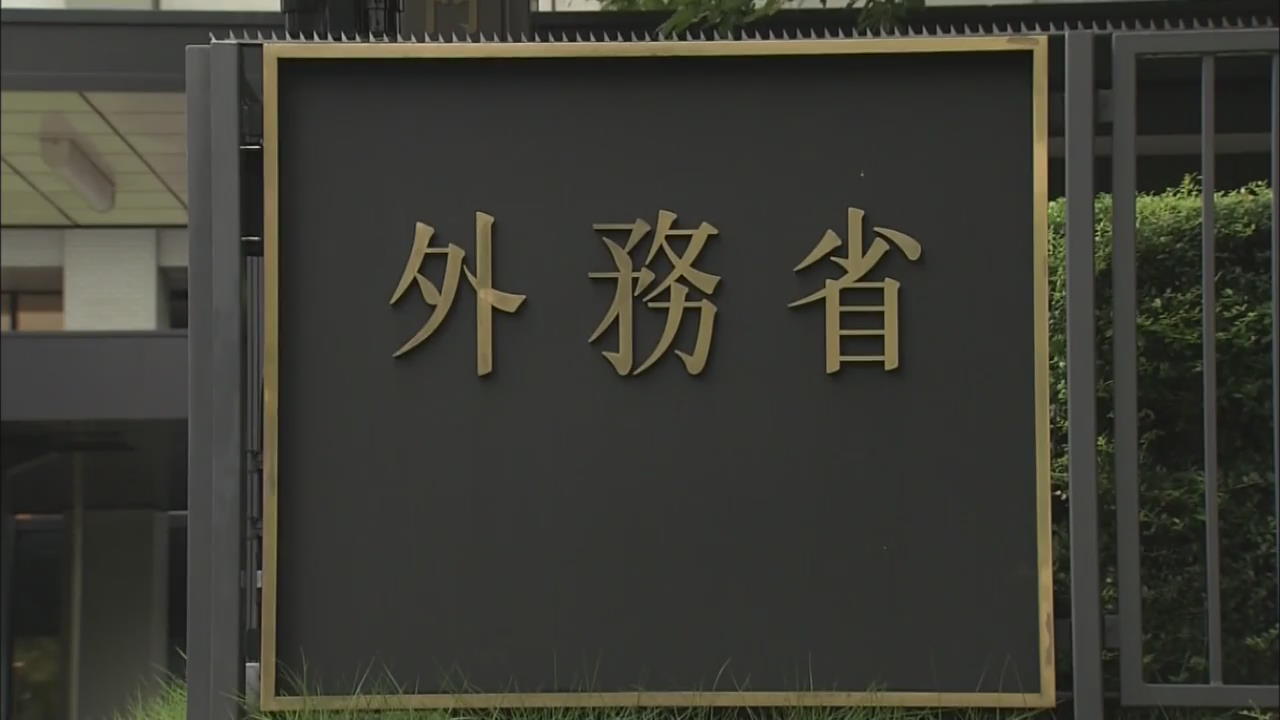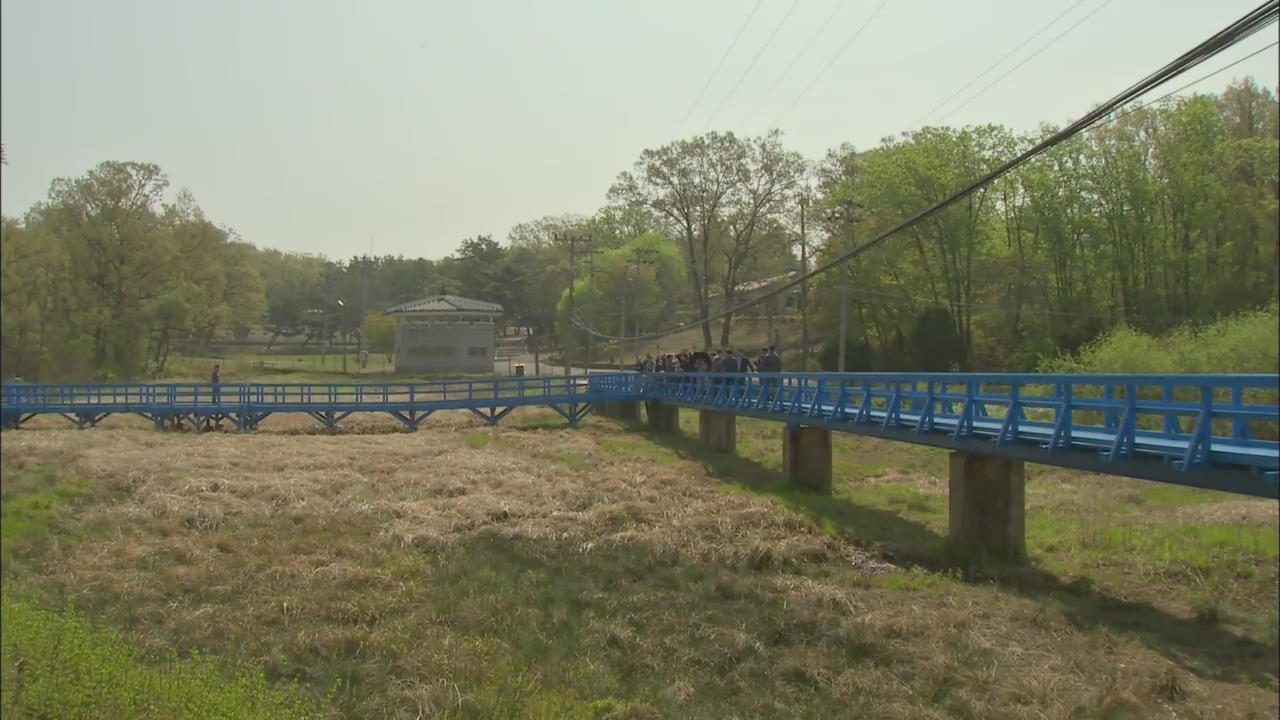COURT REQUEST
입력 2019.05.02 (15:00)
수정 2019.05.02 (16:46)
읽어주기 기능은 크롬기반의
브라우저에서만 사용하실 수 있습니다.
[Anchor Lead]
Victims of Japan's wartime forced labor have filed a request for the court to order the disposal of assets held by Japanese firms in Korea. They want the Japanese firms' domestic assets to be forcibly sold off to be distributed to the victims.
[Pkg]
Lawyers representing victims of Japan's colonial era forced labor have filed a court request asking for the sale of assets in Korea owned by Japanese firms who committed wartime crimes. The assets in question include some 970 million won worth of shares in PNR or POSCO-Nippon Steel RHF Joint Venture Company owned by Nippon Steel Corporation as well as shares in Daesung Nachi Hydraulics worth 760 million won that are owned by Nachi-Fujikoshi Corporation. The latest court request comes after the Supreme Court ruled last year that Japanese firms must compensate Korean victims of its wartime forced labor.
[Soundbite] KIM MYEONG-SOO(SUPREME COURT CHIEF JUSTICE (Oct. 2018)) : "The Tokyo government refuses to recognize the illegality of colonial occupation and the legal responsibility to provide for damages."
But the companies have not once even responded to the victims' negotiation requests. The defense team filed for a provisional seizure of the Japanese firms' assets held in Korea and eventually, the asset disposal request was filed on May first.
[Soundbite] KIM SE-EUN(LAWYER FOR FORCED LABOR VICTIMS) : "Victims are old and action can't be delayed any longer. We'll move ahead with the next steps through an asset disposal request."
As the Supreme Court has already issued a final ruling on damage compensation, pundits believe the asset sale request will likely be approved. But the actual selloff is expected to take at least 3 months. Meanwhile the Japanese government maintains a hard-line stance, saying the forced disposal of Japanese companys' assets is by all means unacceptable.
Victims of Japan's wartime forced labor have filed a request for the court to order the disposal of assets held by Japanese firms in Korea. They want the Japanese firms' domestic assets to be forcibly sold off to be distributed to the victims.
[Pkg]
Lawyers representing victims of Japan's colonial era forced labor have filed a court request asking for the sale of assets in Korea owned by Japanese firms who committed wartime crimes. The assets in question include some 970 million won worth of shares in PNR or POSCO-Nippon Steel RHF Joint Venture Company owned by Nippon Steel Corporation as well as shares in Daesung Nachi Hydraulics worth 760 million won that are owned by Nachi-Fujikoshi Corporation. The latest court request comes after the Supreme Court ruled last year that Japanese firms must compensate Korean victims of its wartime forced labor.
[Soundbite] KIM MYEONG-SOO(SUPREME COURT CHIEF JUSTICE (Oct. 2018)) : "The Tokyo government refuses to recognize the illegality of colonial occupation and the legal responsibility to provide for damages."
But the companies have not once even responded to the victims' negotiation requests. The defense team filed for a provisional seizure of the Japanese firms' assets held in Korea and eventually, the asset disposal request was filed on May first.
[Soundbite] KIM SE-EUN(LAWYER FOR FORCED LABOR VICTIMS) : "Victims are old and action can't be delayed any longer. We'll move ahead with the next steps through an asset disposal request."
As the Supreme Court has already issued a final ruling on damage compensation, pundits believe the asset sale request will likely be approved. But the actual selloff is expected to take at least 3 months. Meanwhile the Japanese government maintains a hard-line stance, saying the forced disposal of Japanese companys' assets is by all means unacceptable.
■ 제보하기
▷ 카카오톡 : 'KBS제보' 검색, 채널 추가
▷ 전화 : 02-781-1234, 4444
▷ 이메일 : kbs1234@kbs.co.kr
▷ 유튜브, 네이버, 카카오에서도 KBS뉴스를 구독해주세요!
- COURT REQUEST
-
- 입력 2019-05-02 15:03:58
- 수정2019-05-02 16:46:01

[Anchor Lead]
Victims of Japan's wartime forced labor have filed a request for the court to order the disposal of assets held by Japanese firms in Korea. They want the Japanese firms' domestic assets to be forcibly sold off to be distributed to the victims.
[Pkg]
Lawyers representing victims of Japan's colonial era forced labor have filed a court request asking for the sale of assets in Korea owned by Japanese firms who committed wartime crimes. The assets in question include some 970 million won worth of shares in PNR or POSCO-Nippon Steel RHF Joint Venture Company owned by Nippon Steel Corporation as well as shares in Daesung Nachi Hydraulics worth 760 million won that are owned by Nachi-Fujikoshi Corporation. The latest court request comes after the Supreme Court ruled last year that Japanese firms must compensate Korean victims of its wartime forced labor.
[Soundbite] KIM MYEONG-SOO(SUPREME COURT CHIEF JUSTICE (Oct. 2018)) : "The Tokyo government refuses to recognize the illegality of colonial occupation and the legal responsibility to provide for damages."
But the companies have not once even responded to the victims' negotiation requests. The defense team filed for a provisional seizure of the Japanese firms' assets held in Korea and eventually, the asset disposal request was filed on May first.
[Soundbite] KIM SE-EUN(LAWYER FOR FORCED LABOR VICTIMS) : "Victims are old and action can't be delayed any longer. We'll move ahead with the next steps through an asset disposal request."
As the Supreme Court has already issued a final ruling on damage compensation, pundits believe the asset sale request will likely be approved. But the actual selloff is expected to take at least 3 months. Meanwhile the Japanese government maintains a hard-line stance, saying the forced disposal of Japanese companys' assets is by all means unacceptable.
Victims of Japan's wartime forced labor have filed a request for the court to order the disposal of assets held by Japanese firms in Korea. They want the Japanese firms' domestic assets to be forcibly sold off to be distributed to the victims.
[Pkg]
Lawyers representing victims of Japan's colonial era forced labor have filed a court request asking for the sale of assets in Korea owned by Japanese firms who committed wartime crimes. The assets in question include some 970 million won worth of shares in PNR or POSCO-Nippon Steel RHF Joint Venture Company owned by Nippon Steel Corporation as well as shares in Daesung Nachi Hydraulics worth 760 million won that are owned by Nachi-Fujikoshi Corporation. The latest court request comes after the Supreme Court ruled last year that Japanese firms must compensate Korean victims of its wartime forced labor.
[Soundbite] KIM MYEONG-SOO(SUPREME COURT CHIEF JUSTICE (Oct. 2018)) : "The Tokyo government refuses to recognize the illegality of colonial occupation and the legal responsibility to provide for damages."
But the companies have not once even responded to the victims' negotiation requests. The defense team filed for a provisional seizure of the Japanese firms' assets held in Korea and eventually, the asset disposal request was filed on May first.
[Soundbite] KIM SE-EUN(LAWYER FOR FORCED LABOR VICTIMS) : "Victims are old and action can't be delayed any longer. We'll move ahead with the next steps through an asset disposal request."
As the Supreme Court has already issued a final ruling on damage compensation, pundits believe the asset sale request will likely be approved. But the actual selloff is expected to take at least 3 months. Meanwhile the Japanese government maintains a hard-line stance, saying the forced disposal of Japanese companys' assets is by all means unacceptable.
이 기사가 좋으셨다면
-
좋아요
0
-
응원해요
0
-
후속 원해요
0












![[속보] 심우정 검찰총장 “형사사법시스템, 국가 <br>백년대계로 설계 돼야”](/data/layer/904/2025/07/20250702_r3BkPK.jpg)




이 기사에 대한 의견을 남겨주세요.